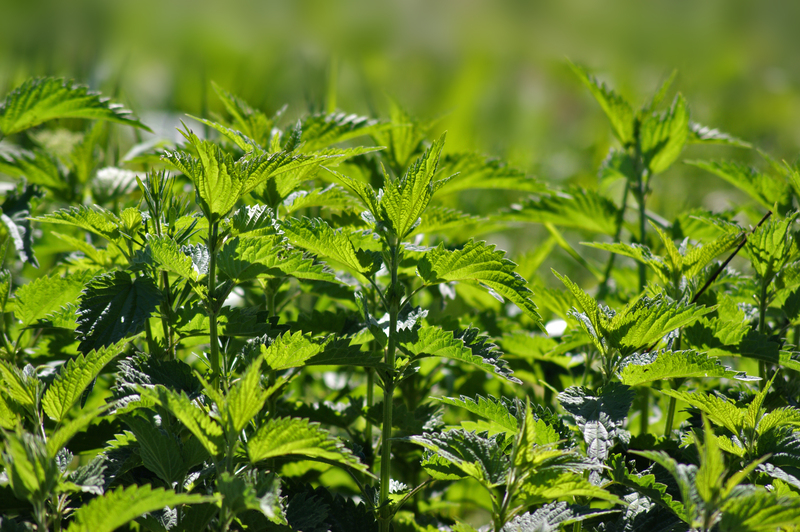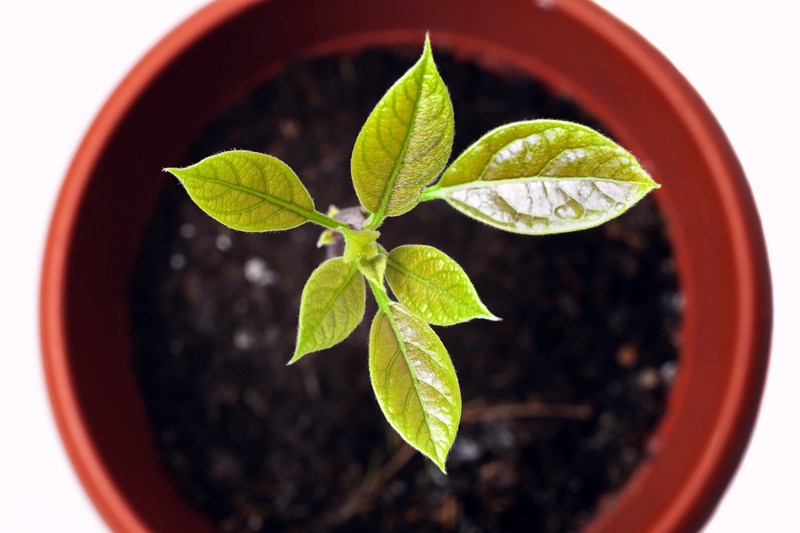Let Your Garden Thrive with 3 Weed Control Tips
Posted on 25/06/2025
Let Your Garden Thrive with 3 Weed Control Tips
A flourishing garden is every gardener's dream. However, persistent weeds can quickly become a nightmare, competing with your plants for vital nutrients, water, and sunlight. Weed control is not just about aesthetics; it is fundamental to ensuring your plants reach their full potential. If you're seeking effective and sustainable solutions, keep reading! Here are three indispensable weed prevention strategies to help your garden reach new heights of health and beauty.

Why Weed Control is Crucial for Garden Success
Before diving into our top weed management tips, it's important to understand why controlling weeds is so significant for your garden:
- Competition: Weeds battle your garden plants for essential resources such as moisture, nutrients, and sunlight.
- Pest Harboring: Many weeds shelter pests and diseases that can spread to your beloved veggies or flowers.
- Reduced Yields: In vegetable patches, uncontrolled weed growth can drastically reduce productivity and harvest.
- Garden Appearance: A weed-free garden looks more attractive, organized, and cared for.
Understanding these challenges underscores the importance of using reliable weed control methods for your thriving garden.
3 Weed Control Tips Your Garden Needs to Thrive
Let's explore the three most effective methods of weed control that every gardener should implement for a beautiful, productive plot.
1. Mulching: Nature's Shield Against Weeds
Mulching is the first line of defense in weed prevention. By applying a thick layer of organic or inorganic mulch to your garden beds, you can suppress weeds while reaping a host of additional benefits.
- How Mulch Controls Weeds: Mulch works by blocking sunlight from reaching weed seeds, preventing them from germinating. Without sunlight, most seeds never get a chance to sprout.
- Types of Mulch You Can Use:
- Organic Mulch: Straw, shredded bark, leaves, grass clippings, or compost enhance the soil as they decompose, feed beneficial microorganisms, and maintain moisture.
- Inorganic Mulch: Black plastic, landscape fabric, or stones offer longer-lasting weed suppression, though they don't add nutrients to the soil.
- How to Apply: Spread a 2-4 inch layer of mulch around your plants. Take care to keep the mulch a few inches away from stems to prevent rotting.
Tip: Periodically check the mulch layer's thickness and replenish as needed, especially after heavy rain or decomposition.
2. Manual Weed Removal: Stay Diligent for Best Results
Hand-pulling and hoeing are classic, organic weed control strategies. Regularly removing weeds keeps them from flowering and spreading seeds, which helps prevent long-term infestations.
- When to Weed: The best time is after rain or watering, when soil is soft. This makes it easier to pull out the entire root system and reduces the likelihood of regrowth.
- Best Practices for Hand Weeding:
- Use a weeding tool or hand fork for deep-rooted weeds like dandelions or thistles.
- Pull weeds while they're small and before they set seed -- persistence pays off!
- Focus on weed hot-spots: around the base of plants, garden bed edges, and paths.
- Dispose of weed debris away from the garden to prevent re-rooting.
Although manual removal can be labor-intensive, it is environmentally friendly and essential for truly effective weed management. Routine and vigilance are the keys to success.
3. Smart Planting and Ground Covers: Outcompete the Weeds
Dense planting and living ground covers are highly efficient, natural weed barriers. By keeping your garden beds full and minimizing bare patches of soil, you deprive weeds of space and sunlight to germinate.
- How It Works: When plants are grown closely together, they form a leafy canopy, shading out potential weeds underneath.
- What to Plant:
- Low-growing Perennial Ground Covers: Examples include creeping thyme, ajuga, sedum, and sweet woodruff. These mat-forming plants grow densely, making it difficult for weeds to take hold.
- Companion Planting: Design your garden so tall, bushy, or spreading varieties fill in the gaps. In vegetable gardens, interplant quick-growing leaf crops like lettuce between slower-growing vegetables such as tomatoes or peppers.
Tip: Always select ground covers suited to your sunlight and soil conditions for the best weed suppression and garden health.
Additional Organic Weed Control Strategies
While our top three tips will tackle most weed issues, consider these supplementary methods as part of a comprehensive garden weed control program:
- Solarization: In early spring or midsummer, cover an area with clear plastic for 4-6 weeks. The trapped heat 'bakes' weed seeds below the surface, dramatically reducing future weed growth.
- Boiling Water: For patios or cracks in pavement, pouring boiling water on unwanted growth is a safe and effective solution.
- Vinegar Spray: A solution of household vinegar can help dry out and kill young weeds. Take care, as vinegar is non-selective and may harm desirable plants.
- Corn Gluten Meal: This natural pre-emergent can prevent certain weed seeds from sprouting when applied at the right time.
These approaches, along with mulching, hand-weeding, and dense planting, combine to create a resilient and thriving garden ecosystem.
Common Garden Weeds: Know Your Enemy
Identification is an important part of successful weed control. Here are a few common garden weeds, and why understanding their life cycles helps in managing them:
- Dandelions: Recognizable by their bright yellow flowers and deep taproots. Remove while young, before seeds spread.
- Crabgrass: A summer annual grass that thrives in disturbed soil. Prevent it by mulching and maintaining a steady ground cover.
- Bindweed (Wild Morning Glory): Twining perennial with white or pink funnel-shaped flowers. Persistent; remove roots fully to prevent regrowth.
- Purslane: Succulent with small, juicy leaves. Fast-growing and edible, but will crowd out vegetables if left unchecked.
A keen eye and early intervention are the best weapons in your garden weed prevention arsenal.
FAQ: Achieving a Thriving, Weed-Free Garden
How often should I weed my garden?
Regular weekly weeding is ideal, especially during the growing season. Removing weeds before they produce seeds is essential for long-term reduction.
What is the most effective way to kill weeds naturally?
A combination of mulching, manually pulling weeds, and using dense plantings is generally the most effective organic approach. Supplemental methods like vinegar spray or hot water are useful for spot treatment.
Is it possible to have a completely weed-free garden?
While it's difficult to eliminate weeds entirely, these techniques can reduce weed populations to a manageable level so your plants thrive without competition.
Can I compost weeds?
It depends. Most non-seeding green weeds can be hot-composted safely. However, avoid composting seeds and aggressive runners, as they may survive and re-infest your beds.

Key Takeaways: Your Thriving, Weed-Free Garden Awaits
- Mulch generously to block light and prevent weed seeds from germinating.
- Remove weeds promptly by hand or with garden tools to prevent spreading.
- Plant densely and use ground covers to outcompete weeds, creating a natural barrier.
- Monitor regularly for any new weed growth and act quickly to keep your garden at its best.
- Supplement with eco-friendly techniques like solarization, homemade sprays, and pre-emergent barriers for extra protection.
By following these three crucial weed control tips and incorporating additional organic methods as needed, you'll create a garden oasis where your plants can thrive--beautiful, bountiful, and largely weed-free. Consistency and attentiveness are your greatest allies in ensuring lasting garden success.
Start Today for a Healthier, Happier Garden
There's no need to let weeds steal the spotlight in your outdoor space. With these weed prevention strategies, your garden will flourish all season long. Begin implementing these methods today and watch as your hard work leads to lush, healthy plants and vibrant blooms. Whether you're a seasoned gardener or just starting out, the right weed control approach makes all the difference--so dig in, stay vigilant, and enjoy the fruits of your efforts!
Latest Posts
Create Climate Resilience with Thoughtful Gardening
Container Gardening: Your Path to a Greener Lifestyle
Ingenious Winter Plant Protection Techniques for You
5 Practical Tips for Designing a Low Maintenance Garden on a Budget



